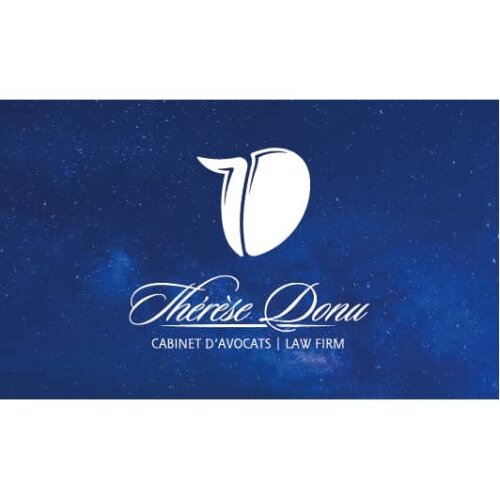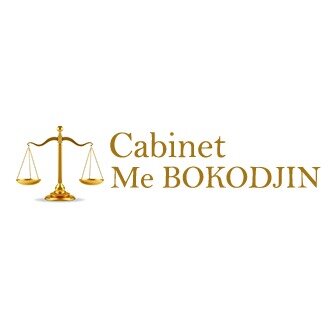Best International Trade Law Lawyers in Lomé
Share your needs with us, get contacted by law firms.
Free. Takes 2 min.
List of the best lawyers in Lomé, Togo
About International Trade Law in Lomé, Togo
International Trade Law in Lomé, Togo, is a dynamic and complex field that encompasses a range of legal aspects related to the exchange of goods and services across international borders. As a member of the West African Economic and Monetary Union (WAEMU) and the Economic Community of West African States (ECOWAS), Togo operates within a framework of regional accords that promote trade liberalization and economic integration. Additionally, Togo is a member of the World Trade Organization (WTO), which further shapes its trade practices and legal requirements. The country's strategic location as a trade hub in West Africa makes understanding International Trade Law crucial for businesses engaged in importing, exporting, and other multinational operations.
Why You May Need a Lawyer
Engaging a lawyer well-versed in International Trade Law becomes essential in various circumstances. These include when negotiating complex international contracts, resolving cross-border disputes, ensuring compliance with local and international regulations, navigating tariff and non-tariff barriers, and understanding trade-related tax implications. Additionally, lawyers can provide invaluable assistance in matters related to customs operations, intellectual property rights protection, and addressing unfair trade practices.
Local Laws Overview
Lomé, Togo's international trade legal landscape is influenced by both domestic and regional regulations. Key aspects include compliance with WAEMU and ECOWAS protocols regarding trade liberalization and customs duties. A notable local legislation is the Togolese Customs Code, which governs policies on import and export tariffs, customs procedures, and enforcement measures. Moreover, the country's investment code offers various incentives for foreign investors, highlighting the importance of understanding these laws to benefit from such opportunities. Businesses must also adhere to regulations related to the protection of local industries and the environment, ensuring balanced trade practices.
Frequently Asked Questions
What is the role of customs in International Trade Law in Togo?
Customs authorities in Togo are responsible for regulating imports and exports, ensuring compliance with customs duties, and preventing illegal trade. They play a crucial role in facilitating international trade by processing customs declarations and inspecting goods.
How does Togo benefit from regional trade agreements?
Regional trade agreements like WAEMU and ECOWAS provide Togo with opportunities to expand market access, promote economic integration, and reduce tariff barriers among member states, thus fostering a more competitive trade environment.
What legal challenges might a business face while trading internationally from Togo?
Businesses may encounter challenges such as compliance with diverse international trade regulations, navigating complex customs procedures, resolving cross-border trade disputes, and addressing currency exchange issues.
How are trade disputes resolved in Togo?
Trade disputes in Togo can be resolved through arbitration and litigation under the guidance of legal practitioners familiar with both national and international trade laws. Regional organizations like WAEMU and ECOWAS also provide dispute resolution mechanisms.
What are the key regulatory bodies for international trade in Togo?
Key regulatory bodies include Togo's Ministry of Trade, Industry, and Local Consumption, the Togolese Revenue Office (OTR) for customs regulations, and various international trade facilitation institutions.
What should be included in an international trade contract?
An international trade contract should include detailed terms of sale, delivery conditions, payment terms, dispute resolution mechanisms, and clauses on intellectual property rights and force majeure.
Are there incentives for foreign businesses in Togo?
Yes, Togo's investment code offers incentives for foreign businesses, including tax breaks, reduced customs duties, and simplified administrative processes to encourage international investment.
How can businesses ensure compliance with international trade standards?
Businesses should stay informed about global trade standards, regularly update their compliance practices, and seek legal advice to ensure adherence to international norms and local regulations.
What is the importance of intellectual property in international trade?
Intellectual property protection is crucial for safeguarding innovations, brands, and designs, especially in international trade, where infringement risks increase due to diverse market access.
How does Togo facilitate trade through the Port of Lomé?
The Port of Lomé, being one of the largest in West Africa, includes modern facilities and streamlined procedures to facilitate maritime trade, making it a key asset in Togo's international trade strategy.
Additional Resources
Individuals seeking legal advice in International Trade Law can explore resources such as the Togo Chamber of Commerce, the Togolese Ministry of Trade, and international trade organizations like ECOWAS and WAEMU. Additionally, financial institutions and trade facilitation agencies may provide insights and support for businesses engaging in international trade.
Next Steps
If you require legal assistance in International Trade Law, consider consulting a specialized attorney with expertise in international trade regulations and local legal frameworks. Research potential lawyers or law firms in Lomé, review their experience and case history, and make inquiries about consultation services. It is also advisable to connect with local business networks or chambers of commerce that can provide referrals or recommendations for reliable legal support in the field of International Trade Law.
Lawzana helps you find the best lawyers and law firms in Lomé through a curated and pre-screened list of qualified legal professionals. Our platform offers rankings and detailed profiles of attorneys and law firms, allowing you to compare based on practice areas, including International Trade Law, experience, and client feedback.
Each profile includes a description of the firm's areas of practice, client reviews, team members and partners, year of establishment, spoken languages, office locations, contact information, social media presence, and any published articles or resources. Most firms on our platform speak English and are experienced in both local and international legal matters.
Get a quote from top-rated law firms in Lomé, Togo — quickly, securely, and without unnecessary hassle.
Disclaimer:
The information provided on this page is for general informational purposes only and does not constitute legal advice. While we strive to ensure the accuracy and relevance of the content, legal information may change over time, and interpretations of the law can vary. You should always consult with a qualified legal professional for advice specific to your situation.
We disclaim all liability for actions taken or not taken based on the content of this page. If you believe any information is incorrect or outdated, please contact us, and we will review and update it where appropriate.











